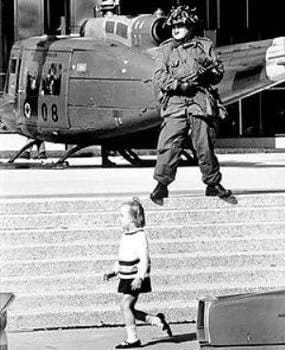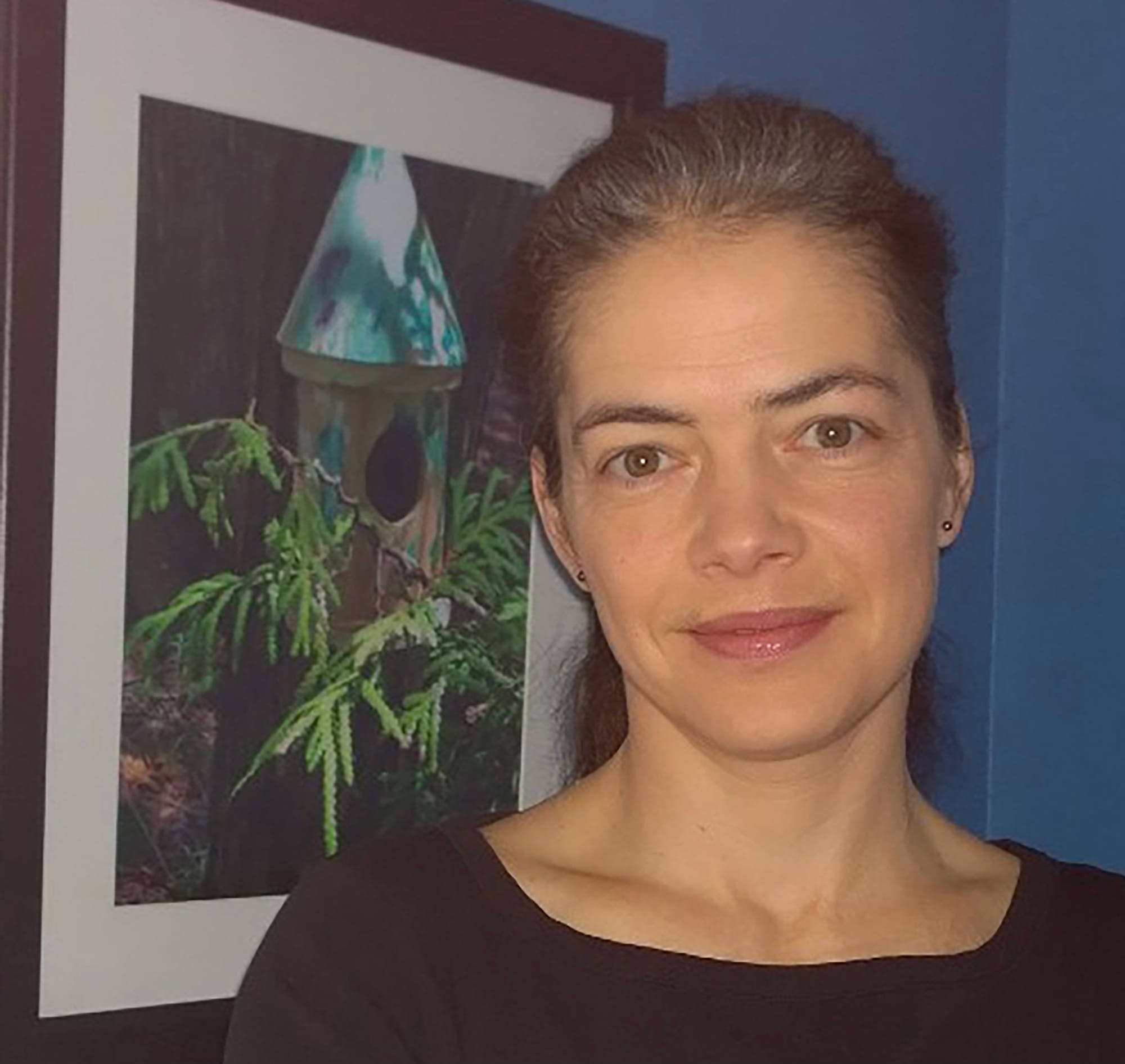The October Crisis: Why we need an apology

Relationship Lesson #4549: It’s not because your ex suddenly yanks your chain that you have to respond. Sometimes, ignorance is the best course of action. Unless of course you come to realize, time and proper emotional distancing helping on the empathy front, that maybe they have a teeny bit of a point.
Before leader Yves-François Blanchet got sidelined due to a positive COVID-19 diagnosis (his wife also contracted the virus; as far as anyone knows both are now fine), the Bloc Québécois was in the process of demanding an apology from the federal government for having used the War Measures Act to arrest and imprison nearly 500 citizens throughout Quebec 50 years ago, without warrants and often without much by way of cause either.
And since the prime minister who did that is the father of the current one, there’s bound to be sparks.
The Bloc, of course, knows this. I mean, it’s pretty obvious.
I’m kind of glad, you know. If it hadn’t been for that, we’d all have slept through the separatist party (the other one) selecting a new leader to take them to the promised land. Just like we entirely missed the 40th anniversary of the first referendum back in May.
Whaaaaa?
Yeah, no. Not even Quebecers marked that one. In fact, and this may be the most ironic moment of 2020 at least as far as Canadian politics are concerned, the only mention I noticed in my perusal of Quebec media was a special feature in the Montreal Gazette, a touching piece about the man photographed crying in that legendary photo from May 20, 1980.
The PQ leadership race may not mean a great deal to you, and perhaps it’s also not of particular significance to most Quebecers, but to the 35,000 or so members of the party it matters. They have a choice between four candidates (all white males, sigh) who appear earnest and serious enough, even the guy whose night job is to make people laugh onstage.
The October Crisis, on the other hand... If you’re old enough to remember, you certainly have an opinion on it.
It’s fun, but
But, hey. The PQ. They need a new leader to replace, er, hang on, need to look this up.
Got it! It’s to replace interim leader Pascal Bérubé who took over when Jean-François Lisée quit in 2018 after he failed to get even 20 per cent of the vote in that year’s election.
The PQ, not to put too fine a point on it, is a rump. In fact some days it looks like the old Jacques Parizeau’s jibe about the eternal visit to the dentist kinda turned on itself. (Inside joke. Couldn’t resist.)
It’s easy to make fun of the PQ. Goodness knows I’ve done it enough myself. The party is like your perennially-single uncle who teaches literature at a community college and enjoys debating the finer points of Thomas Edison’s life in excruciatingly painstaking detail but who couldn’t change a light fixture if his life depended on it. The guy who possesses all the useless knowledge in the world and none of the practical skills. Someone who sucks at relationships to boot, and who’s unable to stop talking about that thing nobody wants to hear anything about anymore.
But hey, way to rack up consistency points. Who else out there, as a movement that’s had significant influence on a society and — must I remind you — that was in power in Quebec as recently as 2014, has been so reliably reliable in their debates to the point of making your teeth hurt?
The leadership vote is scheduled for October 9. The four candidates are historian Frédéric Bastien, comedian Guy Nantel, lawyer and writer Paul Saint-Pierre Plamondon and Sylvain Gaudreault, the only one currently sitting in the National Assembly as the representative for Jonquière. They’re all terribly earnest and they all desperately seem to want the job.
You might think it won’t matter anyway, since the party of François Legault seems destined to stay in power for as long as there is a pandemic, which for all I know might be roughly forever. And the Opposition is the Liberals, under the leadership of Dominique Anglade, a black woman, so you know, it will be hard for the PQ to present a credible, forward-thinking alternative not only with yet another white guy as leader but with approximately zero new ideas to propose.
I’m here to tell you it just might. Matter, I mean. I still have scars from having written off the PQ too many times. It’s a strange thing, about this party, that it never seems to die. Almost like Quebecers didn’t want to part with it, even though it has long ceased serving a useful purpose.
Who we are, really
Like separatism. Quebecers, evidently, never really wanted it. But they never clearly not wanted it either. They’re keeping it around like an insurance policy. Something that you don’t want to need, but don’t want to get caught without either.
You can laugh at the metaphysical indecision all you want, there is a certain logic to it.
It’s hard to understand if your only life experience is as a member of a group that suffered little to no historical disadvantage. Like, say, if you’re a white straight English-speaking middle-aged fellow.
If you’re not, if you’ve experienced systemic disadvantages of any kind, you know those wounds run deep. For French-speaking Quebecers of a certain age, the history of their parents and grand-parents, often denied jobs or possibilities of advancement because they didn’t speak — or were — English is still traumatizing. And not without reason.
Quebecers were always guaranteed their linguistic rights within British North America. By law, if not by practice, at least not until Quebecers took linguistic matters into their own hands with the adoption of Bill 101 in 1977. It should have been both.
You can join the Lord Durham Admiration Society and bitch about this all you want, it remains a fact that French language rights were always supposed to be protected by law. Without this protection, there never would have been a Canada at all.
And where would we be?
Canadian nationhood and, even more so, Canadian identity is one of those problems that’s really not much of one. If it weren’t so damn cliched I’d call it a first world problem.
Except of course those are all we have, and we’ve lost all perspective on what constitutes real problems that we have thousands of people protesting against wearing a thin piece of fabric over their face in the middle of a deadly global pandemic. But I digress.
Bellyaching over what Being A Canadian really actually means is a luxury of peaceful nations. And we certainly are that. We have so much time on our hands that we can spend inordinate amounts of it gazing at our navels in a Derridaesque attempt to locate Lacan’s infamous objet petit a. (Look it up, I’m done posing for now.)
In the end, though, does it really matter whether or not we know who we are?
No. It’s 2020. We’ve evolved past binary options when it comes to gender and sexual orientation. Can we not also have pan-nationalism?
I was born a few weeks after they discovered the body of Pierre Laporte, the Quebec minister kidnapped and murdered by the Front de libération du Quebec, in the trunk of a car. It was a death that not only shook a nation, but an entire generation. Political terrorism of the kind that only happens in banana republics, was now happening right here in Canada.
That shock can still be felt in some corners today, especially corners with grey hair on top. Anyone who remembers the events of October 1970 is obviously getting on in years. Most young people don’t know, and care even less, that there were soldiers on the streets of Quebec, rounding up sympathizers and throwing people in jail who had no business being there.
They don’t remember then-prime minister Pierre Trudeau’s answer to how far he would go to fight political terrorism. If you remember his “just watch me,” welcome to political irrelevance.
The War Measures Act went too far
The birth of separatist political parties happened more or less at the same time as the terrorism, and of course the former got tainted by the latter. Unfairly, but still. The truth is, most separatists are gentle souls. They can be annoying, yes. But they wouldn’t hurt a fly unless it spoke to them in English in which case they’d lecture the poor insect into exiling itself to Toronto or some equally dreary place.
You don’t have to go farther than Montreal on the eve of some American invasion anywhere in the world to see that Quebecers have an almost visceral aversion to violence. And while they are grateful to soldiers rescuing them from tough spots, be it an ice storm or an outbreak of COVID-19 in a long-term care home, most Quebecers don’t really want there to be that much military presence, especially not on the streets of the province.
In a way, the story of Canadian identity is that of a marriage that died without a word. English and French came together and, along with Indigenous peoples (so it never was a traditional marriage, score one for the rainbow coalition, woohoo) partnered in relative lack of disharmony to form a new nation that aimed to bring the best of all those worlds together.
As myths go, it could be worse. At least there was relatively little blood. But were we ever happy, then or ever after? That’s a much more complicated question.
Canada never gelled as a society around a common purpose. It was a marriage of reason, a cold arrangement for peace, order and good government. There was never much love. But it was the best we could do under the circumstances so we more or less embraced it.
We never became a nation. But we kick ass at being a cool country. And therein lies the rub: that in order to be a great county we need to be a rather poor nation, a cold calculated unemotional union of practical partners who thought this is a big territory and we all need to work at defending it, so we should join forces. We did join forces and have kept the county safe. In a way, the bargain worked out just fine.
Should the feds apologize for the War Measures Act? Yes. It was right to fight the small group of actual terrorists. But it was wrong to use that as an excuse to round up so many people who hadn’t committed any crime, and weren’t about to do so either.
Separatists may still rub you the wrong way. But they do have a point. Of course these debates can be painful and uncomfortable. Nobody says we have to like it. But whether we want to or not, there will always be folks wanting to challenge the status quo. That’s how progress happens.




